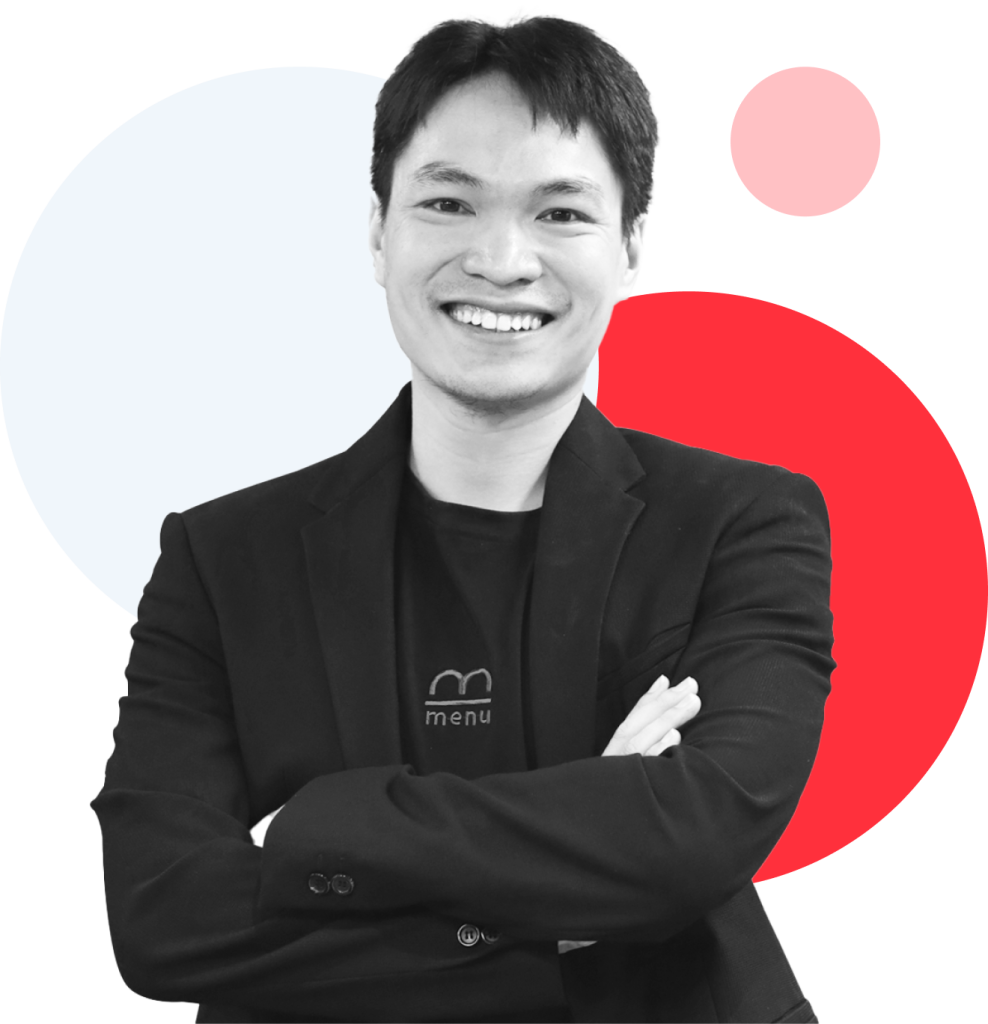Do Tri Quoc – Founder & Chief Technology Officer of Mmenu is a seasoned technology engineer with more than 15 years of experience at famous technology corporations in Japan such at Rakuten, Coincheck, Accenture. He was also at senior engineering role at Google. His extensive experience in Japan has equipped him with a rigorous approach to development, characterized by applying advanced technologies, stringent quality control, and a steadfast commitment to optimal performance and reliability.





Mr. Quoc Do
Founder & CTO - Mmenu Group
Slogan
CUSTOMER FIRST, ALWAYS!
Mission
Shaping the future with Technology
Vision
All-in-one F&B Management Solution
CORE VALUES
Japanese quality
Adhere to Japanese quality standards for products and services with Omotenashi & Kaizen philosophy
Customer-centricity
Actively listen to and understand customer requirements and preferences
Speed
Foster a culture of speed and agility across the organization to ensure rapid product development and delivery of exceptional customer experiences
Resilience
Demonstrates resilience and determination in the face of complex challenges
OMOTENASHI PHILOSOPHY
Mmenu embracing Japanese Omotenashi Philosophy as the central of our technology-driven F&B management system‘s approach. We aim to embody the spirit of selfless hospitality & create a memorable and satisfying experience for every customer. It’s a deep-rooted cultural value that emphasizes putting the needs and comfort of others above one’s own.
Efficient and Seamless Service
Comprehensive technology-driven solution:
We provide all-in-one application to support restaurant management from online order and payment to restaurant operation & business report
Real-time Customer Service: Enable seamless communication between customers and customer support team, ensuring prompt and efficient service 24/7 both online and offline at the restaurant
Personalized Customer Experiences
Customized Customer Experiences: Offer tailored functions to cater to individual needs following the operation request of each restaurant
Data-Driven Recommendations: Collect customer data to suggest personalized menu items, pairings, or experiences based on their preferences and past orders.
Anticipating Customer Needs
Predictive Analytics: Analyze customer data & actively face-to-face taking feedbacks to anticipate needs and preferences
Proactive Problem Solving: Use technology to identify and address potential issues and actively propose solutions
Continuous Improvement
Customer Feedback: Collecting and analyzing customer feedback to identify areas for improvement and make necessary adjustments & adaptation
Technology Updates: Stay updated with the latest technology trends and innovations to ensure that the F&B management system remains effective
KAIZEN CULTURE: CONTINUOUS IMPROVEMENT
Key Principles of Kaizen
Small, frequent improvements: Kaizen focuses on making small, incremental changes rather than large-scale overhauls.
Involvement of everyone: All employees, from top management to frontline workers, are encouraged to contribute ideas and participate in the improvement process.
Process-oriented: Kaizen emphasizes improving processes and systems rather than just focusing on the end result.
Elimination of waste: Kaizen aims to identify and eliminate waste in all forms, including time, materials, and resources.
Respect for people: Kaizen values human potential and creates a workplace culture that encourages creativity, innovation, and teamwork.
Kaizen in Practice
Product quality: Improving product quality through defect reduction and process optimization.
Operational efficiency: Streamlining processes, reducing waste, and increasing productivity.
Customer service: Enhancing customer satisfaction by improving service delivery and responsiveness.
Workplace safety: Creating a safer working environment by identifying and eliminating hazards.
Employee morale: Fostering a positive and engaging work environment that encourages employee participation and development.
Benefits of Kaizen
Increased efficiency and productivity: Kaizen can help businesses improve their operations and reduce costs.
Improved quality: Kaizen can lead to higher quality products and services.
Enhanced customer satisfaction: Kaizen can help businesses better meet the needs and expectations of their customers.
Increased employee engagement: Kaizen can create a more positive and empowering work environment.
Competitive advantage: Kaizen can help businesses stay ahead of the competition by continuously improving their processes and products.

